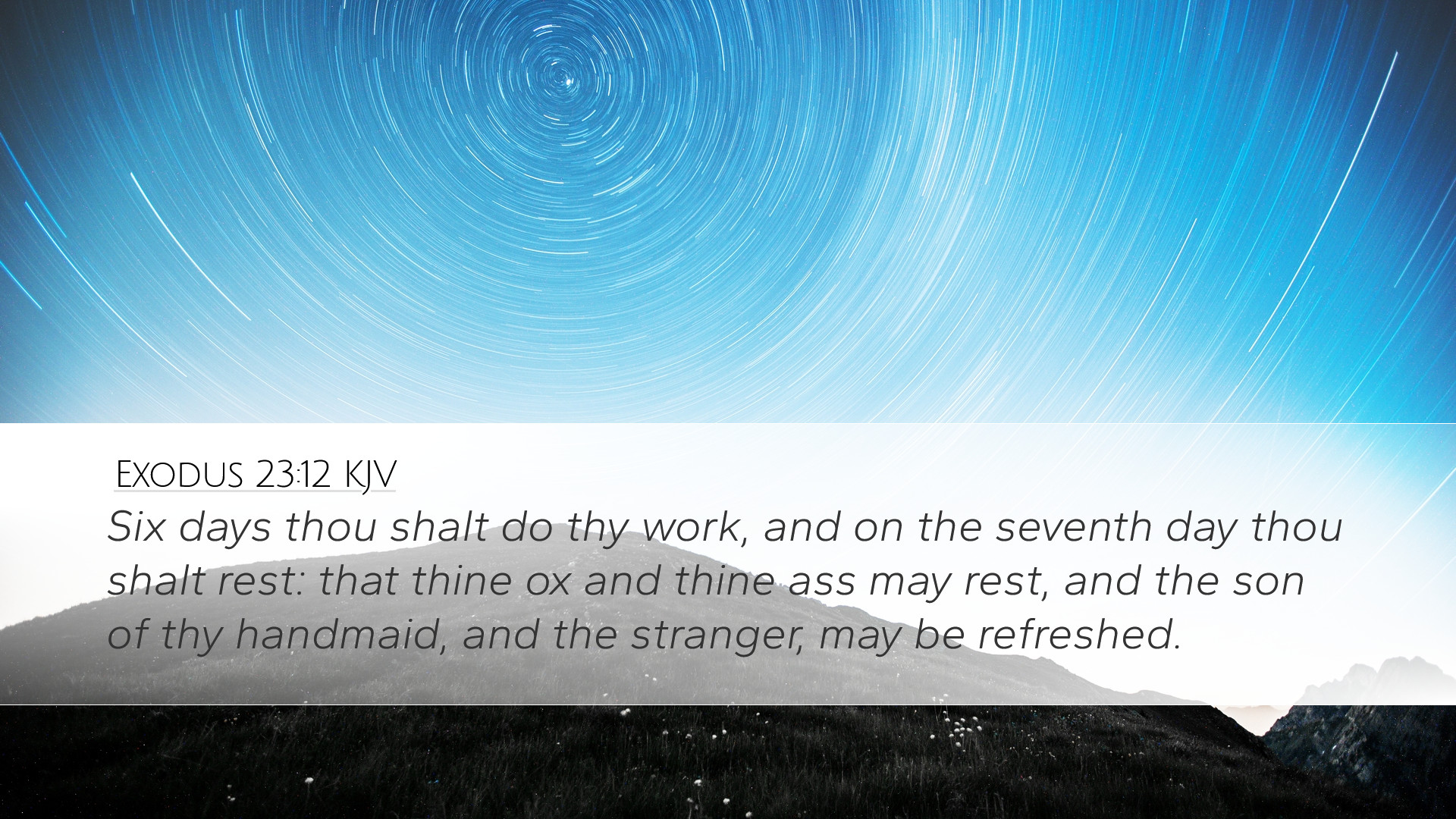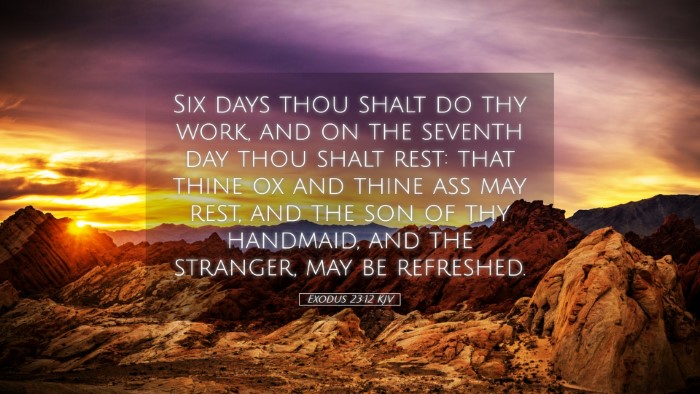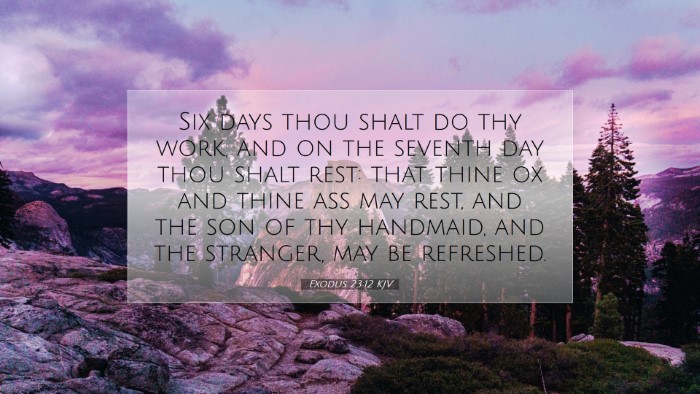Exodus 23:12 Commentary
Verse: "Six days you shall do your work, but on the seventh day you shall rest, that your ox and your donkey may have rest, and the son of your servant woman, and the alien, may be refreshed."
Introduction
This verse is part of the larger context of God's commandments and laws given to the Israelites through Moses. It emphasizes the importance of rest not only for people but for animals and foreigners as well. Public domain commentaries provide rich insights into its theological implications, cultural context, and practical applications.
Theological Insights
Divine Commandment of Rest: The command to rest on the seventh day underscores God's intention for creation, encouraging a rhythm of work and rest. As Matthew Henry notes, this reflects the Creator’s own pattern, where He rested on the seventh day after creation (Genesis 2:2-3). This principle of Sabbath rest is not just beneficial for human well-being but is intrinsic to God's design.
Universal Rest: The command extends beyond human labor. Albert Barnes emphasizes that all living beings should experience rest, symbolizing God's concern for all aspects of His creation. This rests implies justice and mercy, concerning the treatment of animals and marginalized individuals in society (the son of your servant woman and the alien).
Refreshment and Renewal: The final phrase mentions refreshment not only for people but for animals. Adam Clarke outlines that this refreshment points to the holistic renewal that comes from rest. It serves as a reminder to acknowledge and attend to the needs of the created order, fostering relationships built on compassion.
Cultural Context
Ancient Work Patterns: In the agrarian society of ancient Israel, animals were integral to labor. The commandment highlights a progressive insight into animal welfare, which was countercultural given the prevailing attitudes of many neighboring nations. Henry notes that the welfare of one's working animals represents an ethical concern that is both practical and spiritual.
Social Responsibility: The inclusion of the servant's son and the alien in this commandment illustrates God's inclusive approach to social welfare. Barnes draws attention to the social stratification of that period; the mention of the alien signifies God's desire for inclusion. The rest allowed for the refreshment of everyone, promoting a sense of community among different social classes.
Applications for Today
Emphasizing Rest: The principle of sabbatical rest can be directly applied to contemporary life. As we face the demands of modern work, the instruction of Exodus 23:12 serves as a vital reminder for individuals and communities to value rest. Pastors and church leaders can encourage their congregations to create rhythms of work and rest, as spiritual health is often tied to physical and emotional well-being.
Ethics of Labor and Care: The holistic approach to work and rest in this verse invites discussions about social responsibility in today's society. Adam Clarke points to the ethical implications of treating workers with dignity. It urges leaders to consider the human and animal labor that supports their livelihoods, advocating for fair practices and decent living conditions.
Creating Inclusive Spaces: The inclusion of the alien, or stranger, serves as a prophetic call to contemporary faith communities. In a society often marked by division, the practice of refreshment and rest can extend to marginalized groups. Churches play a crucial role in leading efforts to embrace and care for those who may feel excluded or overworked, fostering an environment of welcome and community.
Conclusion
Exodus 23:12 provides profound insights that stretch across millennia, touching on issues of work, rest, compassion, and social justice. By reflecting on the comprehensive nature of this commandment, scholars and theologians can draw important lessons for both personal faith and communal practice. As each generation grapples with its understanding of work and rest, Scripture invites a continual return to God's heart for creation—marked by rhythm, refreshment, and restoration.


